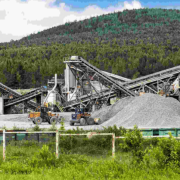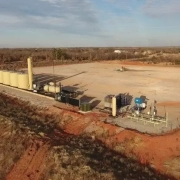The information provided on this page is for general informational purposes only and does not constitute legal, financial, or investment advice. Oil and gas laws, mineral rights regulations, and royalty structures vary significantly by state and jurisdiction. While we strive to provide accurate and up-to-date information, no guarantee is made to that effect, and laws may have changed since publication.
You should consult with a licensed attorney specializing in oil and gas law in your jurisdiction, a qualified financial advisor, or other appropriate professionals before making any decisions based on this material. Neither the author nor the publisher assumes any liability for actions taken in reliance upon the information contained herein.
Valuing undeveloped mineral rights can be a complex task that requires a thorough understanding of both the geology of the land and the market for the minerals in question. Mineral rights refer to the ownership of the minerals beneath the surface of a piece of land. These can include oil, natural gas, coal, metals like gold and silver, and other geological materials. When these rights are undeveloped, meaning the minerals have not yet been extracted or the land has not been mined, assessing their value involves several specialized techniques.
Understanding Mineral Rights and Undeveloped Mineral Rights
Before delving into the techniques for valuing mineral rights, it is essential to understand what these rights entail. Mineral rights can be sold, leased, or retained separately from the land itself. This separation means that the owner of the mineral rights has the authority to extract and sell the minerals found beneath the land. The value of these rights is influenced by the type and quantity of minerals, market demand, and the feasibility of extraction.
Geological Assessment
A geological assessment is one of the most fundamental steps in valuing undeveloped mineral rights. This involves studying the land’s geology to determine the presence and extent of mineral deposits. Geological surveys, including seismic testing and core sampling, can provide detailed information about the mineral composition and potential yield of the land. By understanding the type and quality of the minerals present, one can better estimate their value.
Market Analysis on Undeveloped Mineral Rights
Market analysis is crucial for understanding the economic viability of extracting the minerals. This involves studying current market conditions, including the demand and price trends for the specific minerals. Economic indicators, such as commodity prices, market supply and demand, and future market forecasts, play a significant role in determining the potential revenue from mineral extraction. The analysis should also consider geopolitical factors and technological advancements that could impact the market.
Comparable Sales Method
The comparable sales method, also known as the market approach, involves comparing the undeveloped mineral rights in question with similar mineral rights that have been sold recently. This method is particularly useful when there are enough comparable transactions available. By analyzing the sales prices of similar mineral rights, one can infer the value of the undeveloped rights. Factors to consider in this comparison include the location, type of minerals, and the stage of development of the mineral rights.
Income Approach
The income approach, or discounted cash flow analysis, involves estimating the future income that can be generated from the mineral rights and discounting it to present value. This method requires projecting the future revenue from mineral extraction, considering factors such as production rates, operational costs, and taxes. The projected cash flows are then discounted using an appropriate discount rate to account for the time value of money and risks associated with the extraction process. This approach is particularly useful for minerals with established markets and predictable extraction processes.
Cost Approach for Undeveloped Mineral Rights
The cost approach estimates the value of mineral rights based on the cost of developing and extracting the minerals. This method involves calculating the costs associated with exploration, development, and production, and then adding a reasonable profit margin. The cost approach is often used when there is limited market data for comparable sales or when the mineral rights are in the early stages of exploration. It provides a baseline value by considering the expenses required to bring the minerals to market.
Risk and Uncertainty Analysis
Valuing undeveloped mineral rights involves significant uncertainties and risks. Factors such as geological uncertainty, regulatory changes, and market volatility can impact the value of the rights. Risk and uncertainty analysis involves identifying and assessing these factors to provide a more accurate valuation. Techniques such as sensitivity analysis, scenario analysis, and Monte Carlo simulations can be used to evaluate how different variables affect the value of the mineral rights. This analysis helps in understanding the range of possible outcomes and the associated risks.
Lease and Royalty Agreements
Lease and royalty agreements can significantly impact the value of undeveloped mineral rights. When mineral rights are leased to a mining or drilling company, the terms of the lease, including the royalty rate, lease duration, and other contractual obligations, play a crucial role in the valuation. The royalty rate, which is the percentage of revenue paid to the mineral rights owner, directly affects the income generated from the minerals. Evaluating existing or potential lease agreements is essential for an accurate valuation.
Technological Advancements
Technological advancements in mining and drilling techniques can influence the feasibility and cost of extracting minerals. Innovations that improve extraction efficiency, reduce costs, or enable access to previously inaccessible deposits can enhance the value of mineral rights. Staying informed about technological trends and advancements in the mining and energy sectors is important for accurately valuing undeveloped mineral rights.
Environmental and Regulatory Considerations
Environmental regulations and policies can have a significant impact on the value of mineral rights. Compliance with environmental standards, reclamation requirements, and permitting processes can affect the cost and feasibility of mineral extraction. Understanding the regulatory landscape and potential changes in environmental policies is crucial for assessing the value of mineral rights. Additionally, public perception and potential opposition to mining activities can influence the valuation.
Landowner Considerations
The relationship between the landowner and the mineral rights owner can also affect the value of undeveloped mineral rights. In some cases, the landowner may hold surface rights while a different entity holds the mineral rights. Negotiating agreements and addressing potential conflicts between surface and mineral rights holders is essential for a smooth extraction process. The willingness of the landowner to cooperate and grant access to the land can impact the feasibility and cost of mineral extraction.
Professional Valuation Services
Given the complexity of valuing undeveloped mineral rights, seeking professional valuation services can be beneficial. Appraisers, geologists, and industry experts can provide specialized knowledge and expertise to ensure an accurate valuation. Professional appraisers use a combination of the techniques mentioned above, tailored to the specific characteristics of the mineral rights being assessed. Their expertise can help navigate the intricacies of the valuation process and provide reliable estimates.
Case Studies and Examples of Undeveloped Mineral Rights
Examining case studies and real-world examples of mineral rights valuations can provide valuable insights into the valuation process. These examples illustrate how different techniques are applied in practice and highlight the challenges and considerations involved. Learn from successful valuations and understand factors today. Learn what are influencing the outcomes can enhance one’s ability to value undeveloped mineral rights accurately.
Valuing undeveloped mineral rights requires a multifaceted approach. It combines geological assessments, market analysis, and various valuation techniques. Understanding the type and quality of minerals, analyzing market conditions, and considering risks. Uncertainties are essential steps in the valuation process. Techniques such as the comparable sales method, income approach, and cost approach provide valuable insights. The potential value of the mineral rights is dependent on this. Additionally, lease agreements, technological advancements, environmental considerations, and professional expertise play crucial roles. This determines the accurate value of undeveloped mineral rights. Start employing a comprehensive and informed approach. You can navigate the complexities of valuing undeveloped mineral rights and make informed decisions in the mineral and energy sectors.
Do you have further questions related to Undeveloped Mineral Rights? Feel free to reach out to us here.











